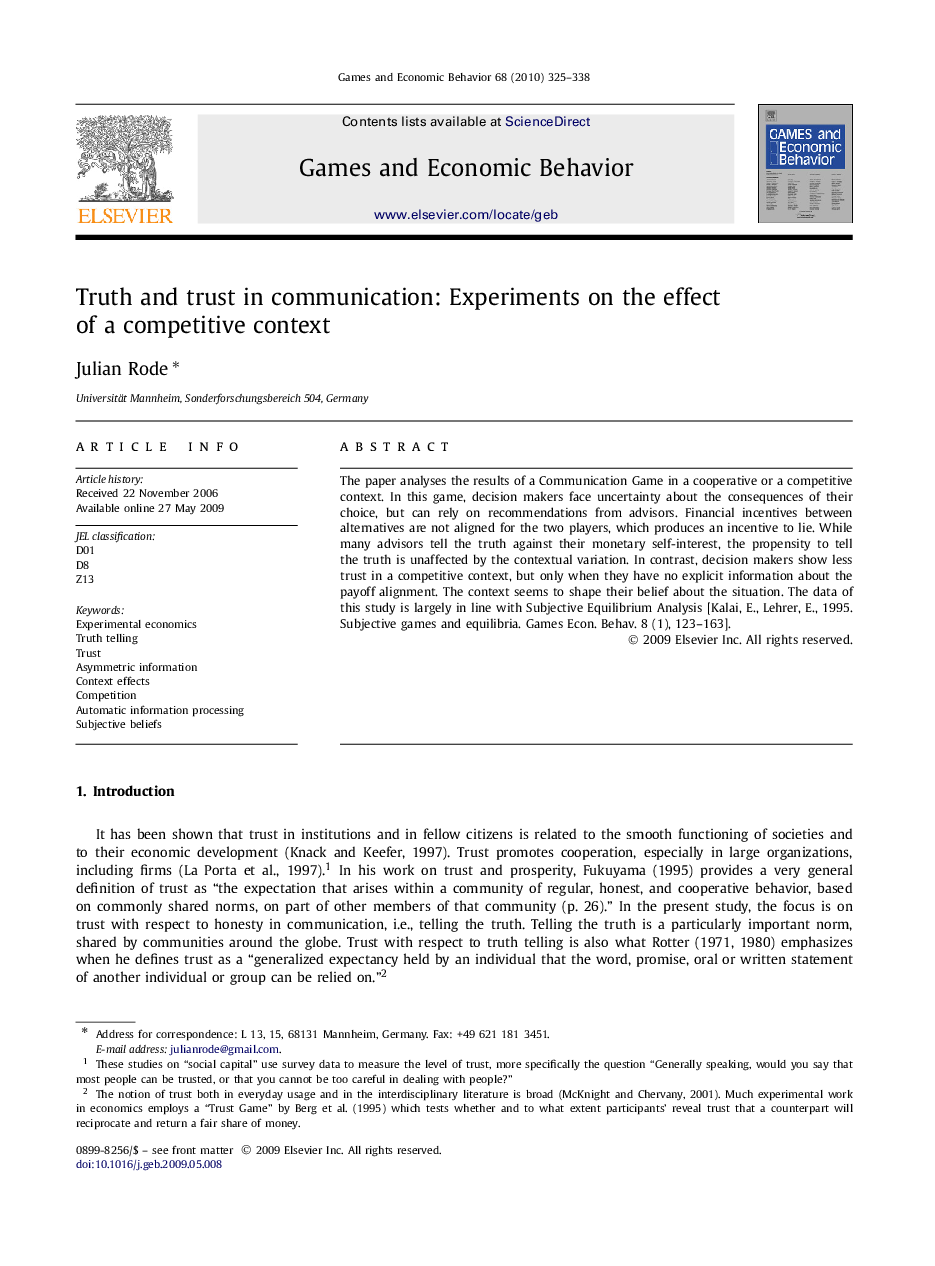| Article ID | Journal | Published Year | Pages | File Type |
|---|---|---|---|---|
| 5072459 | Games and Economic Behavior | 2010 | 14 Pages |
Abstract
The paper analyses the results of a Communication Game in a cooperative or a competitive context. In this game, decision makers face uncertainty about the consequences of their choice, but can rely on recommendations from advisors. Financial incentives between alternatives are not aligned for the two players, which produces an incentive to lie. While many advisors tell the truth against their monetary self-interest, the propensity to tell the truth is unaffected by the contextual variation. In contrast, decision makers show less trust in a competitive context, but only when they have no explicit information about the payoff alignment. The context seems to shape their belief about the situation. The data of this study is largely in line with Subjective Equilibrium Analysis [Kalai, E., Lehrer, E., 1995. Subjective games and equilibria. Games Econ. Behav. 8 (1), 123-163].
Keywords
Related Topics
Social Sciences and Humanities
Economics, Econometrics and Finance
Economics and Econometrics
Authors
Julian Rode,
